This month I’m reading…
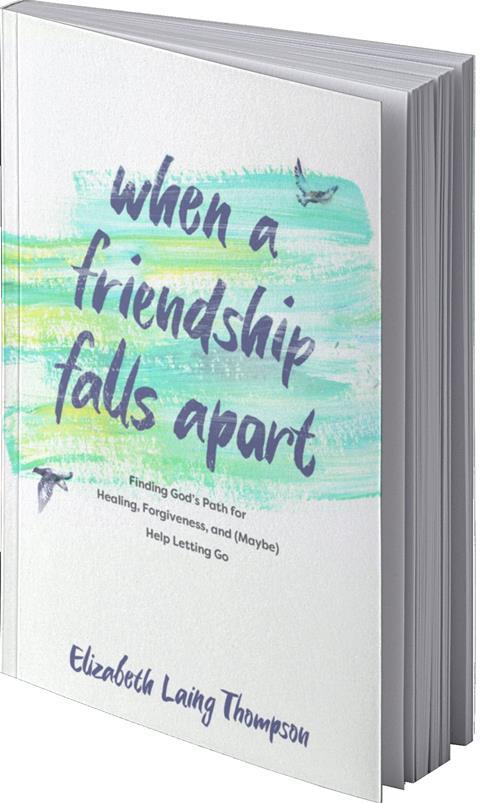
When a Friendship Falls Apart: Finding God’s path for healing, forgiveness, and (maybe) help letting go
Elizabeth Laing Thompson (Tyndale House Publishing, 978-1496463128)
Perhaps it is because we have recently emerged out of a season of enforced isolation, but the topic of friendship has been the subject of a few different books/projects born this year. Phil Knox has recently written The Best of Friends: Choose wisely, care well (IVP), while Sheridan Voysey has launched FriendshipLab.org, which recognises the growing percentage of people who have no close friends so seeks to empower women and men with the wisdom and skills to make their friendships thrive.
When a Friendship Falls Apart, tackles that most difficult – but vital – of questions, which most other books don’t dare to even go to: what happens when a friendship reaches crisis point? Too often, as Christians we seem to believe that we simply have to get on, so hurt, bitterness and a sense of loss are all pushed down and fester. Elizabeth Laing Thompson lifts the lid on it all, acknowledging that, while we choose our friends, we are still at risk of getting hurt – and we probably will be. Even though friendships can offer such beauty and connection, we can be left reeling when they fall apart.
What drew you to the subject of broken, hurting friendships?
I had been praying for guidance, asking God to show me what book I should write next, when my publisher came to me, saying they felt there was a big need for a book about broken friendships and asking if I would be interested in tackling this topic. I spent a few days pondering all the Bible has to say about navigating difficult relationships – and wow, God has a lot to offer us. As I looked back on my own friendship experiences, the good and bad, I realised how much I could share from my own life. I love meeting people in the messy places of faith – the places where emotions fly, insecurity whispers and shame points its cruel finger. It doesn’t get much messier than friendship loss. Put all that together, and I really felt like God was calling me to write this book.
Why do you think we struggle to navigate the messy times in our friendships?
In theory, a friendship between two Christians is supposed to be the strongest, deepest and safest type of friendship. We share the same faith, the same Lord, the same biblical definitions of love, honesty and forgiveness. Because of all that, we feel like Christian friendships aren’t ‘supposed’ to struggle and fail – but sometimes they do. And, when they do, the loss can be especially painful. Not only do we feel sad and hurt; we may also feel a sense of guilt, shame and disappointment: ‘What did we do wrong? Is God disappointed in us – or angry? Are other believers criticising us because of this conflict?’ These feelings may make it difficult for us to open up and seek the support we need.
To add to the complexity, when a misunderstanding arises with a fellow believer – particularly one who goes to our church or runs in the same Christian friend circles as we do – it may be inappropriate to talk about the conflict with our other friends. To do so could create distrust, devolve into gossip or force other friends to take sides. So it’s tricky. We may have to seek help from someone outside our usual support system.
What goes on in our heads as we ruminate about situations, people and conversations causes added stress and problems. What can we do to challenge and rewrite the unhealthy scripts?
Sometimes a faltering friendship makes us come to terms with our own blind spots, insecurities and quirks. Acknowledging those issues can be a positive thing if it leads us to grow and change; however, we have to guard against spiralling into damaging kinds of regret and shame. We have to guard against extreme thoughts like: ‘This is all my fault…I’m the worst friend ever…I’ll never build a healthy friendship.’
As a recovering perfectionist and guilty soul, I have to intentionally acknowledge weakness and mistakes in ways that leave me feeling empowered instead of paralysed. So, I might take the thought: ‘This is all my fault’ and turn it into a more fair-minded analysis, like this: ‘I contributed to this conflict, and my friend did too. We both need to take responsibility for our part.’
How would you want to encourage any of our readers who have been so wounded by a friendship that they don’t feel they could ever open up to anyone again – and certainly not a potential new friend?
In the book, I share about a time a mug handle broke in my hands, spilling hot tea all over me. For a long time afterward, the memory of the pain haunted me whenever I reached for a mug – I developed an unconscious habit of holding mugs with two hands, just in case the handle failed. As odd as it sounds, it was many months before I held a mug without fear. In the same way, a friendship fracture can leave us haunted by fear and the memory of pain. We may feel anxious or guarded, afraid to take the risk of opening up to new friends.
Yes, we’ve been burned, but those wounds don’t have to limit our hearts forever. I encourage you to identify your fears – what, exactly, are you afraid will happen if you open up to someone new? Pray your way through the fears, asking God to help you heal, find peace and move forward.
Elizabeth Laing Thompson on:
The books that have changed my life
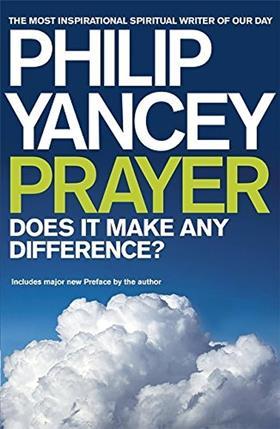
Prayer: Does it make any difference?
by Philip Yancey had a powerful impact on my theology and prayer life. It gave voice to many of the questions I’d faced during our struggle with infertility, and it gave me the courage and confidence I needed to wrestle through those questions in prayer.
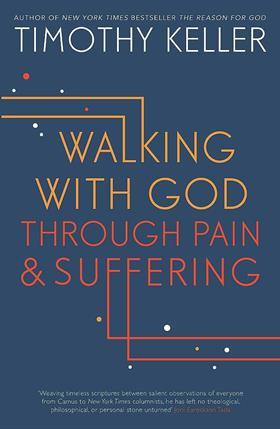
Walking with God through Pain and Suffering by Timothy Keller ministered to my heart and my head – it comforted the hurting places in my heart while also helping me work through my confusion and questions about suffering.
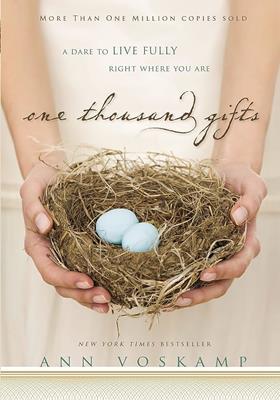
One Thousand Gifts: A dare to live fully right where you are by Ann Voskamp forever transformed my perspective, teaching me to seek gratitude and embrace wonder in all things. And her lyrical writing was (is) an absolute delight.
Publisher Recommendation
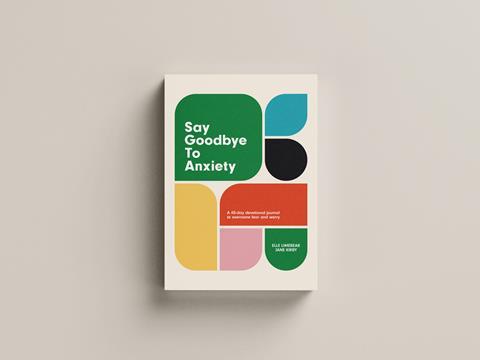
We are thrilled to be partnering with Elle Limebear and Jane Kirby to publish their 40-day devotional journal Say Goodbye to Anxiety.
Having both suffered with anxiety, Elle and Jane understand just how much it can impact our daily lives. They also know the difference Jesus can make. And this is why we think this book is so special!
As they honestly share their stories, Elle and Jane support and cheer us on as they offer God-given practical tools and strategies to overcome anxiety. Over 40 days, they help us to drive out worry, fear and anxiety from our lives, and replace these negative emotions with truth and confidence. As they say in the book: ‘Anxiety has been calling the shots for too long. Enough is enough, it’s time to say goodbye.’
There is a growing pandemic of anxiety so our heart and prayer is that this book will get into the hands of those who need its’ life giving message the most. It can sometimes be hard to find the right words to help a loved one, so with its beautiful design inside and out, we wanted to create a useful resource that can be a gift of blessing to others.
Say Goodbye To Anxiety: A 40-day devotional journal to overcome fear and worry, by Elle Limebear and Jane Kirby, is out in October and was recommended by Rachael Franklin, Product and Marketing Manager for Authentic Media












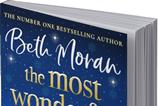
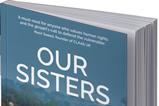
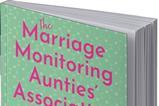


















No comments yet